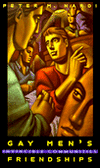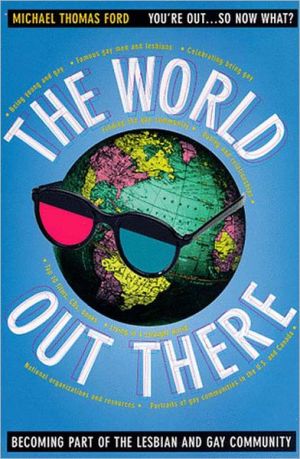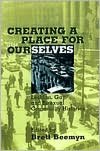Gay Men's Friendships: Invincible Communities
Based on surveys and interviews of two hundred gay men, Peter Nardi's new study presents the first book-length examination of contemporary urban gay men's friendships. Expertly weaving historical and sociological research on friendship with firsthand information, Nardi argues that friendship is the central organizing element of gay men's lives. Through friendship, gay identities and communities are created, transformed, maintained, and reproduced.\ Nardi explores the meaning of friends to...
Search in google:
Based on surveys and interviews of two hundred gay men, Peter Nardi's new study presents the first book-length examination of contemporary urban gay men's friendships. Expertly weaving historical and sociological research on friendship with firsthand information, Nardi argues that friendship is the central organizing element of gay men's lives. Through friendship, gay identities and communities are created, transformed, maintained, and reproduced. Nardi explores the meaning of friends to some gay men, how friends often become a surrogate family, how sexual behavior and attraction affects these friendships, and how, for many, friends mean more and last longer than romantic relationships. While looking at the psychological joys and sorrows of friendship, he also considers the cultural constraints limiting gay men in contemporary urban America—especially those that deal with dominant images of masculinity and heterosexuality—and how they relate to friendship. By listening to gay men talk about their interactions, Nardi offers a rare glimpse into the mechanisms of gay life. We learn how gay men meet their friends, what they typically do and talk about, and how these strong relationships contain the roots of larger cultural forces such as social movements and gay identities and neighborhoods. Nardi also points out the political and social consequences when friendships fail to provide support against oppression. An intimate and informative look at gay life in urban America, Gay Men's Friendships ultimately shows how these relationships challenge the gender order of our society by questioning how masculinity is constructed and by offering a modelfor a more creative blending of gay and heterosexual masculinity. Publishers Weekly Exploring what Hannah Arendt called "the political relevance of friendship," Nardi, a professor of sociology at Claremont College, argues that a tremendous amount of gay political organizing emerges from the bonds between gay men. Although he contends that gay male friendships are "poorly understood" and "not easily explained," he claims that friendship is the primary community institution for urban gay men. In addition to a review of the existing literature of male friendship (from Aristotle and Cicero to current popular and scholarly work), Nardi offers his own research findings, based on 161 questionnaires and 30 face-to-face interviews. While many of his conclusions seem like obvious common sense (such as his claim that many gay men choose not to have sex with their friends for fear of losing the friendship), he also offers some provocative flashes of insight (for example, that gay men's social circles have become less diverse in terms of class and race as political groups and social venues have proliferated and become more specialized). While Nardi attempts a blend of sociology and cultural history, overall, the latter element is more successful; when he lets his subjects speak, the book vibrates with lived experience. In particular, his discussions of the legal ramifications of gay men creating "family" out of friendships (e.g., friends do not have the legal rights to visit the critically ill in a hospital) are important contributions to the growing literature of gay sociology. (July) Copyright 1999 Cahners Business Information.
AcknowledgmentsIntroduction11"Friends Take You Places You've Never Been": Gay Men, New Modes of Relations, and Heroic Friendships132"A Major Wall of Noninvolvement": Contemporary Men's Friendships and Cultural Limitations323"A Chance to Choose My Siblings": Friendship as Kinship484"And We Never Mentioned It Again. Ever.": Friendship, Sex, and Masculinity745"The Magic of Sympathy and Identification": Profiles of Gay Men's Friends1026"All the Gold and Gems of the World": The Meaning and Maintenance of Friendships1287"Where I Go to Know I'm Not Crazy": Developing Social Support, Achieving Identity, and Confronting Conflicts1548"A Vicarious Sense of Belonging": The Politics of Friendship and Gay Social Movements, Communities, and Neighborhoods189App.: Research Methodology207Notes215Bibliography231Index245
\ Publishers Weekly - Publisher's Weekly\ Exploring what Hannah Arendt called "the political relevance of friendship," Nardi, a professor of sociology at Claremont College, argues that a tremendous amount of gay political organizing emerges from the bonds between gay men. Although he contends that gay male friendships are "poorly understood" and "not easily explained," he claims that friendship is the primary community institution for urban gay men. In addition to a review of the existing literature of male friendship (from Aristotle and Cicero to current popular and scholarly work), Nardi offers his own research findings, based on 161 questionnaires and 30 face-to-face interviews. While many of his conclusions seem like obvious common sense (such as his claim that many gay men choose not to have sex with their friends for fear of losing the friendship), he also offers some provocative flashes of insight (for example, that gay men's social circles have become less diverse in terms of class and race as political groups and social venues have proliferated and become more specialized). While Nardi attempts a blend of sociology and cultural history, overall, the latter element is more successful; when he lets his subjects speak, the book vibrates with lived experience. In particular, his discussions of the legal ramifications of gay men creating "family" out of friendships (e.g., friends do not have the legal rights to visit the critically ill in a hospital) are important contributions to the growing literature of gay sociology. (July) Copyright 1999 Cahners Business Information.\ \



